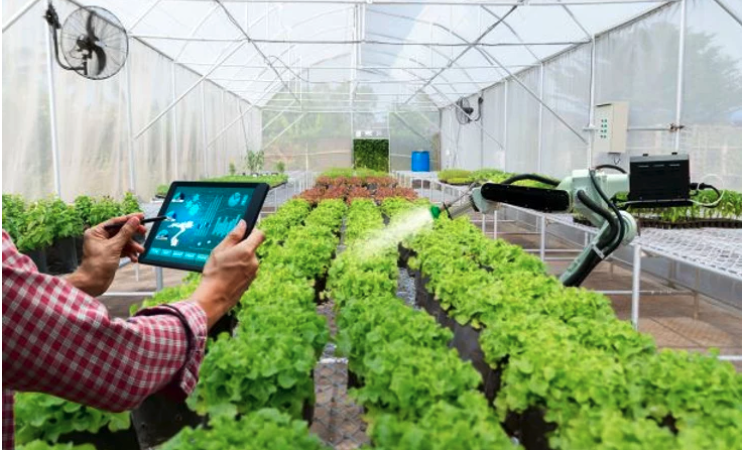Expo 2020 will bring together global minds to collaborate on solutions towards more resilient food systems
Food security has become a global concern in the wake of the coronavirus pandemic that disrupted food supply chains and highlighted inefficiencies in an over-reliance on imports. In an interview with Arabian Business, Hind Alowais, vice president, international participants, Expo 2020 Dubai talks about the role Expo is playing in highlighting these issues in the lead up to Expo 2020 and how the exhibition itself will bring together global minds to discuss pressing challenges, among which is food security. Alowais was talking to Arabian Business ahead of an Expo Talks panel, convened by the World Food Programme, on solutions to build more efficient, inclusive and resilient food systems from farm to fork.
What is Expo 2020’s role in catalysing global action on food security, sustainable agriculture and food systems?
Expo 2020 Dubai believes that now, more than ever, humanity needs to come together to collaborate on global challenges, such as finding solutions to building more efficient, inclusive and resilient food systems.
The next World Expo provides a unique opportunity to bring together the best minds and most inspiring ideas from around the globe, offering an international launch pad for more than 200 participants, including nations, government entities, educational establishments and the private sector, with the shared purpose of delivering real-life solutions to some of the world’s most pressing challenges.
What is the role of women when it comes to food security and how did the Expo talks highlight this?
Expo Talks: Food, Agriculture and Livelihoods brought together leading policymakers and food and nutrition security experts from around the globe to highlight the importance of inclusivity and collective action to create a sustainable global food system that will enable us to serve a world that, by 2050, is predicted to be inhabited by more than 9 billion people.
Today, more than 800 million people around the world go to bed hungry every night, most of them smallholder farmers, who depend on agriculture to make a living and feed their families. Many of these are women and many of them live in Sahel, a semi-arid region of western and north-central Africa.
The recent Expo Talks honed in on the gender aspects of The Great Green Wall initiative, one of the most important agricultural projects of our time. Bringing together entities, such as the African Union, and the United Nations Convention to Combat Desertification (UNCCD), the panel zoomed in on the most transformative role in this space: women.
Women play a key role in food production and form a large proportion of the agricultural work force globally. However, many of the world’s poorest people are women. Poverty eradication and safeguarding food security are key challenges for rural women.
The Great Green Wall offers a powerful solution to food security, not just for rural communities and Africa, but for the global community. An African-led movement with an ambition to grow an 8,000-kilometre green corridor across the width of Africa, it launched in 2007 and is approximately 15 percent underway. The initiative is already bringing life back to Africa’s degraded landscapes on an unprecedented scale, providing food security, jobs and a reason to stay for the millions who live along its path.
The speakers highlighted the efforts and strategies needed to support women in this field and enable them to become more effective.
What programmes and initiatives are being supported by Expo to improve food security and farming practices around the world?
Expo 2020 is already supporting a number of food, agriculture and nutrition-related projects across the world through its global innovation and partnership programme, Expo Live. These include myAgro, a non-profit social enterprise based in West Africa that leverages mobile technology and modern agricultural techniques to move smallholder farmers out of poverty; Desert Control, a Norwegian company with operations in Dubai and is able to transform dry, sandy soil into lucrative arable land with its patented liquid nanoclay, reducing water irrigation needs by more than 50 percent and increasing yields; and the International Center for Biosaline Agriculture, an Abu Dhabi-based non-profit agricultural research centre that was established in 1999 to address poor water quality and water scarcity issues by implementing modular farms for desert and arid environments – Expo Live funding is supporting the development of modular farms across the UAE.
Meanwhile, Expo 2020’s Global Best Practice Programme, ‘Small Steps, Big Leaps: Solutions for Sustainable Impact’, will showcase simple yet impactful interventions that localise the Sustainable Development Goals (SDGs) – projects that are providing tangible solutions to the world’s biggest challenges.
Source: arabianbusiness.com

